![]() change management
change management![]() financial product expert-witness and arbitration
financial product expert-witness and arbitration
![]() financial innovation and risk consulting
financial innovation and risk consulting
![]() banking training
banking training
![]()
Key financial instruments:
understanding and innovating in the world of derivatives -
Warren Edwardes, 4 February 2000,
commissioned and published
by Financial
Times Prentice Hall ISBN 0273 63300 7 ![]() link
link
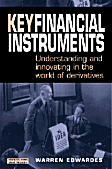 Key
Financial Instruments
:
Understanding and Innovating
in the World of Derivatives Warren Edwardes/ Hardcover / Published 4 February 2000 Financial Times Prentice Hall ISBN 0273
63300 7
Key
Financial Instruments
:
Understanding and Innovating
in the World of Derivatives Warren Edwardes/ Hardcover / Published 4 February 2000 Financial Times Prentice Hall ISBN 0273
63300 7


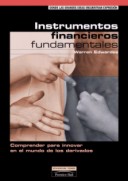 Instrumentos Financieros Fundamentales
Instrumentos Financieros Fundamentales
Warren Edwardes Hardcover
(October 2001)
Prentice Hall; ISBN: 8420531952


 Ключові
фінансові інструменти. Орієнтування та інновації у світі деривативів/Key
financial Instruments; Уоррен
Едвардес ( Warren
Edwardes ) ISBN : 966-520-018-6
Ключові
фінансові інструменти. Орієнтування та інновації у світі деривативів/Key
financial Instruments; Уоррен
Едвардес ( Warren
Edwardes ) ISBN : 966-520-018-6
news and reviews
1
April 2005
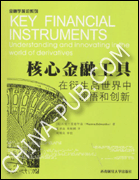 Key Financial Instruments
launched in Chinese .
details
Key Financial Instruments
launched in Chinese .
details
2 Jan 2003
 Key Financial Instruments
launched in Ukrainian as as
Klyuchovi
Finansovi Instrumenty
produced by Yurincom supported by the British Council.
"Southwest Financial University Press will launch a simplified character Chinese
translation in the second half of 2003." said Lynette Owen, Copyright
Director, Pearson Education.
details
Key Financial Instruments
launched in Ukrainian as as
Klyuchovi
Finansovi Instrumenty
produced by Yurincom supported by the British Council.
"Southwest Financial University Press will launch a simplified character Chinese
translation in the second half of 2003." said Lynette Owen, Copyright
Director, Pearson Education.
details
29 May 2002
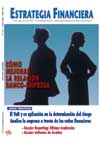 Warren
Edwardes' book
"Instrumentos
financieros fundamentales"
reviewed by the Spanish magazine Estrategia Financiera in its May 2002 edition. "Se
desmitifican los instrumentos financieros, sus estructuras, beneficios, riesgos
y recompensas; y a la vez se ofrece la solución adecuada para utilizar
acertadamente y evitar el abuso de cualquier tipo de producto derivado. "
reseña
Warren
Edwardes' book
"Instrumentos
financieros fundamentales"
reviewed by the Spanish magazine Estrategia Financiera in its May 2002 edition. "Se
desmitifican los instrumentos financieros, sus estructuras, beneficios, riesgos
y recompensas; y a la vez se ofrece la solución adecuada para utilizar
acertadamente y evitar el abuso de cualquier tipo de producto derivado. "
reseña
16 February 2002
 “If you wish
to unravel the complexities of financial instruments, you should read the book.
This book is available at the BDO library.” Internal Publication, The Technical
& Training Dept, BDO Binder Chartered Accountants, Malaysia
details
“If you wish
to unravel the complexities of financial instruments, you should read the book.
This book is available at the BDO library.” Internal Publication, The Technical
& Training Dept, BDO Binder Chartered Accountants, Malaysia
details
22
November 2001
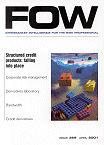 link
Warren
Edwardes' book Key financial instruments
reviewed by Jane Douglas-Jones, Managing Editor, FOW Magazine "has
attitude in spades ..many books that deal with derivatives are either
overwhelmingly dull or complex. Warren Edwardes' book strives to break with this
tradition - and succeeds"
review
link
Warren
Edwardes' book Key financial instruments
reviewed by Jane Douglas-Jones, Managing Editor, FOW Magazine "has
attitude in spades ..many books that deal with derivatives are either
overwhelmingly dull or complex. Warren Edwardes' book strives to break with this
tradition - and succeeds"
review
12
November 2001 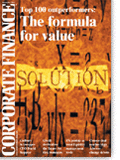 Warren
Edwardes' book Key financial instruments
reviewed by Angus Foote Editor, Corporate Finance Magazine "refreshing
.. throughout the book, Edwardes concentrates on themes and principles rather
than on pure maths as he seeks to demystify derivatives .. heavy stuff is there
too, although the author seeks to lighten it up with historical examples and
context .. appendices very useful, as they outline financial risk types and
explain the major risk management instruments and terms." review
Warren
Edwardes' book Key financial instruments
reviewed by Angus Foote Editor, Corporate Finance Magazine "refreshing
.. throughout the book, Edwardes concentrates on themes and principles rather
than on pure maths as he seeks to demystify derivatives .. heavy stuff is there
too, although the author seeks to lighten it up with historical examples and
context .. appendices very useful, as they outline financial risk types and
explain the major risk management instruments and terms." review
4 November 2001 ![]() Warren
Edwardes' book
"Instrumentos
financieros fundamentales"
reviewed by the Spanish newspaper El Periodico "Este libro de Warren
Edwardes desmitifica los instrumentos financieros fundamentales; sus
estructuras, beneficios, riesgos y recompensas, y ofrece la solución adecuada
para usar acertadamente y evitar el abuso de cualquier tipo de producto derivado.
Resulta, por ello, un práctico manual para el desarrollo y uso con éxito de
los productos financieros y una solución para evitar la derivatofobia."
reseña
Warren
Edwardes' book
"Instrumentos
financieros fundamentales"
reviewed by the Spanish newspaper El Periodico "Este libro de Warren
Edwardes desmitifica los instrumentos financieros fundamentales; sus
estructuras, beneficios, riesgos y recompensas, y ofrece la solución adecuada
para usar acertadamente y evitar el abuso de cualquier tipo de producto derivado.
Resulta, por ello, un práctico manual para el desarrollo y uso con éxito de
los productos financieros y una solución para evitar la derivatofobia."
reseña
29 October 2001  Key
Financial Instruments, reviewed by
Malaysia's leading newspaper, The Star "Derivatives minus the
gobbledygook ... clears away the cobwebs, identifies and explains not only the
who? what? where? when? and how? of financial product development but also most
importantly, why?"
Key
Financial Instruments, reviewed by
Malaysia's leading newspaper, The Star "Derivatives minus the
gobbledygook ... clears away the cobwebs, identifies and explains not only the
who? what? where? when? and how? of financial product development but also most
importantly, why?"
2
October 2001 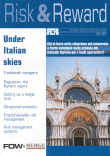 "Warren
Edwardes' book Key financial instruments
is a most refreshing and entertaining read.", said
Kim Hunter, Editor, Risk and Reward, London
"Warren
Edwardes' book Key financial instruments
is a most refreshing and entertaining read.", said
Kim Hunter, Editor, Risk and Reward, London
18
August 2001  Warren
Edwardes' best-seller
Key
Financial Instruments, launched in Spanish as
"Instrumentos
financieros fundamentales" "Profesionalmente,
un espléndido trabajo." , "Para aquellos que
deseen descubrir el delicioso mundo de los derivados sin la desalentadora
tarea de tener que comprender su jerga. Instrumentos Financieros
Fundamentales es la lectura deslumbrante y decisiva de la década."
"Las breves y claras explicaciones de Edwardes muestran cómo
la ingeniería financiera puede ser utilizada para reducir
la incertidumbre y mejorar los resultados de una manera sencilla."
details
Warren
Edwardes' best-seller
Key
Financial Instruments, launched in Spanish as
"Instrumentos
financieros fundamentales" "Profesionalmente,
un espléndido trabajo." , "Para aquellos que
deseen descubrir el delicioso mundo de los derivados sin la desalentadora
tarea de tener que comprender su jerga. Instrumentos Financieros
Fundamentales es la lectura deslumbrante y decisiva de la década."
"Las breves y claras explicaciones de Edwardes muestran cómo
la ingeniería financiera puede ser utilizada para reducir
la incertidumbre y mejorar los resultados de una manera sencilla."
details
1
August 2001
![]() Key
Financial Instruments, reviewed by Seana Lanigan
of erivativesreview.com ".. I found it to be a collection
of telling vignettes, which provide a series of fascinating insights
into product development and marketing in particular .. the real
pleasure of the book is when Edwardes is just expounding his business
philosophy. He uses a lot of quotations and anecdotes from all
walks of life to illustrate his points, which are usually fairly
simple but often ignored in reality. ...The book is written in
a lively entertaining manner and gives many insights into Edwardes
own personality" "It
was a great read! I seem to have become the muggins who has to read everything
on the subject of credit derivatives and Key financial instruments was a very
welcome change!" details
Key
Financial Instruments, reviewed by Seana Lanigan
of erivativesreview.com ".. I found it to be a collection
of telling vignettes, which provide a series of fascinating insights
into product development and marketing in particular .. the real
pleasure of the book is when Edwardes is just expounding his business
philosophy. He uses a lot of quotations and anecdotes from all
walks of life to illustrate his points, which are usually fairly
simple but often ignored in reality. ...The book is written in
a lively entertaining manner and gives many insights into Edwardes
own personality" "It
was a great read! I seem to have become the muggins who has to read everything
on the subject of credit derivatives and Key financial instruments was a very
welcome change!" details
20th
March 2000 Global
Trading reviews key financial instruments:
"The introduction,
application, ideas, innovation and risk plus the management of
risk is captured in this most exciting new publication which is
a must for the tutor, practitioner to the humble student and dabbler
in the world of finance today."
For a complete copy of this review in PDF format please click
here.
![]() link
link
10 March 2000 Just over a month after its launch, a second impression of "Key financial instruments:" has been ordered. Copies of the book will be available again on 20 March 2000.
Updates and commentary to the first edition of "Key financial instruments: understanding and innovating in the world of derivatives"
There is nothing more difficult to plan, more doubtful of success, nor more dangerous to manage than the creation of a new system. For the initiator has the enmity of all who profit by preservation of the old institutions and merely lukewarm defenders in those who would gain by the new ones - Niccolo Machiavelli
The Big Why
In Holland in the 1630’s there was a lively options market in Tulip bulbs – until the wife of a trader cooked a bulb thinking it was an onion. Has much changed?
In the late 1990’s the "hedge fund", Long Term Capital Management received a USD 3.5billion bailout. And this firm was founded in 1994 with two Nobel laureates. Soon afterwards, NatWest bank was criticised over their GBP 77 million options mis-pricing loss. Such events suggest that there is still a great deal for bankers, regulators and corporations to understand about derivatives.
And on 10 April 1999 The Financial Times reported that "Assurers may face GBP14billion bill for pension guarantees". The losses could have been mitigated through using derivatives and dwarf those that arose through using derivatives.
And the Financial Times reported on 15th September 1999 that "US prosecutors have charged Martin Armstrong, chairman of offshore investment group Princeton Economics International, with securities fraud in connection with the sale of USD 3billion in bonds to foreign investors." Princeton Economics was yet another "hedge fund" that did the opposite - it carried out futures markets operations to take risk.
And just as this book is being finalised, on 29th October 1999, Stephen Byers, the UK Department of Trade and Industry Minister, held a summit with chairmen of British mortgage banks to discuss lending practices and terms. Many bank chairmen declined the invitation. According to The Times of 23rd October 1999 a bank source said "inviting the chairmen of the country's mortgage lenders indicated a profound misunderstanding of how mortgage lenders work ... chairmen would not be conversant with the finer details of specific products." Sadly, it may be wrong to assume that bank chairmen understand what happens in the banks under their charge. But the quoted proud statement perhaps suggests something worse. Obtaining a broad understanding of relatively simple products such as fixed rate mortgages and their embedded derivatives and talking to a briefing is deemed to be beneath the dignity of some senior bankers and best left to the jolly good chaps on the dealing desks. It is no wonder that bank after bank loses a small fortune on derivatives trading. A telling comment by a senior Barings executive when Leeson disappeared was "one of our barrow-boys has gone missing".
I met six honest serving men. They taught me all I know. Their names were - Who, What and Why; Where, When and How. Rudyard Kipling
This book brings financial instruments to life. It clears away the cobwebs, identifies and explains not only the Who? What? Where? When? and How? of financial product development but most importantly, Why? Thus the reader will gain an understanding of not only customers’ needs-driven solutions but also bankers’ bonus-driven schemes. And through history, apply these techniques to future financial instruments.
Table of Contents
dedication
about the author
endorsements
foreword
preface
Part I: Introduction
Part II: Key Financial Instruments
Part III: Cases in innovation: from creativity to closing
Part IV: Risk Management
Part V: Back to the Future?: Current Developments and Trends
Part VI: Appendices
dedication
This book is dedicated first and foremost to Esperanza my wife for her patience, support and encouragement.
I thank my colleagues, clients and students who have encouraged me to write such a book over the years. I particularly thank Alan McRae for commenting on parts of the manuscript. Of course, I take full responsibility for the contents except for the chapter on legal risks written by Iona Levine whom I thank. Iona Levine is partner and head of the Derivatives practice at Hammond Suddards and author of Derivatives: Law & Documentation published by Sweet & Maxwell.
Farrukh Imran Younus assisted with the appendix on Islamic Banking. Of course, this book would not have been written were it not for the invitation of the publishers, Richard Stagg and Amelia Lakin and I thank them for their patience.
Finally, thanks are due to Ralph and Emilio. Ralph is my father-in-law’s Alsation dog. He kept me company on my inspirational walks in Can Pelegrì in Serinyà in Girona, Spain. This is a book about innovation in financial markets. Amongst other businesses, the internet and communication technology is radically transforming financial markets and publishing. This work was commissioned by the London publishers in the age of the internet when I was in Korea and submitted to them via e-mail using a mobile phone attached to a sub-notebook computer in a farm in the Pyrenees foothills in Northern Spain. Emilio is Spanish slang for e-mail.
about the author
Warren Edwardes is Chief Executive of Delphi Risk Management, a London-based financial instrument innovation, communication and risk management consultancy. He has over twenty years of first-hand experience in the financial markets. Prior to founding Delphi he was on the board of Charterhouse Bank as Director, Financial Engineering in the Capital Markets Division. He has also worked for the Equitable Life Assurance Society, the UK Government Actuary’s Department and the treasuries of Barclays Bank, British Gas and Midland Bank. Whilst an undergraduate in Probability he applied his training working in a betting shop. He is Director of schoolofbanking.com at the London International School of Banking and Finance and until recently, he was visiting professor at the Korea Banking Institute.
Warren Edwardes has designed and implemented numerous innovative financing, investment and derivative structures since 1978, including the Break Forward, Limit swap and Perpetual swap and this book includes the story behind some of his inventions. His wide range of publications includes "Derivatiphobia" and "How to think creatively". In innovation management, he coined the concept "Hindervation" which helps firms to remove innovation roadblocks or creativity crashers and also encourages innovation through "Upside-down thinking" and "Cross thinking". He is often invited to present his "IDEA kit".
Besides his conventional academic training in Probability at Sheffield University and then Economics and Econometrics at Southampton University, Warren Edwardes was schooled in communication at the London Academy of Performing Arts and is an Advanced Toastmaster and a Past-President of a Toastmasters International club, the world-wide public speaking organisation. He is a frequent conference chairman and speaker on a range of banking and financial topics in many countries and has often appeared on television.
Warren Edwardes once complained about his Madrid hotel room. He had been listening to a cassette tape-based negotiating course. The course presenter advised in the very first lesson to get a room upgrade or discount soon after checking into the hotel.
Warren triumphantly pointed out a
stain on the room carpet to the hotel management and waited for
the promised discount or an upgrade. He was just met with a shrug
of the shoulders and a bit of carpet
sweeping by the housekeeper. No upgrade. No discount. Useless
course he thought.
But Warren did not let things lie. He wrote to the Hotel chain's president. Months later he received a phone call from the firm's Head of Quality Control. He was rewarded with a half-price night's stay in a Barcelona hotel with a bowl of fruit and a bottle of Cava in the room.
Warren did not initially get his desired free room at the Barcelona Ritz but a year later married Esperanza, the chain's Head of Quality Control at the Ritz and stayed the night there. Warren has stopped complaining!
Exchanges of ideas and experiences are most welcome. Warren Edwardes can be contacted with details of financial instruments omitted or any comments. Also contact Delphi for free derivatives software. Amendments, comments and frequently Asked Questions to this, the first edition of Key Financial Instruments will be posted onto the WebPage www.dc3.co.uk/kfi.htm
Delphi’s E-mail: kfi@dc3.co.uk
Delphi’s Website: www.dc3.co.uk
A macro approach to understanding
derivatives. Edwardes not only understands the mechanics of derivatives,
but more importantly, has a deep understanding for the big
picture. Read it, then read it again. Fred Balcom, Senior Account
Manager. FinancialCAD Corporation, Vancouver
If you haven't attended a Warren Edwardes speech or lecture, this book is the next best thing. If you have, then you'll want to relive it through these pages. I found it very well written. Professionally superb work." Professor Suk-Jung Chang, Professor of Finance, Illinois State University, Illinois
For those who wish to discover the delightful world of derivatives without the daunting task of understanding the usual gobbledegook, Key financial instruments is the decisive, dazzling read of the decade. Jim Courtney, Publisher, Global Trading, London
A comprehensive and thorough coverage of the finer points of derivatives and financial engineering. Edwardes' clear and succinct explanations show how financial engineering can be used to reduce uncertainty and improve returns in an uncomplicated manner. Peter Feltis, Senior Manager, Corporate Advisory, Banque Nationale de Paris, Seoul
This book certainly lives up to the title. In plain English he provides a thorough understanding of derivatives, in terms of the instruments themselves and aspects of the instruments (e.g. risk, tax and legal aspects.). A useful tool for all managers involved with derivatives that also functions effectively as a reference. Julian Fry, Assistant Vice-President, European Derivatives, Merrill Lynch Europe, London
A refreshing demystifying book on derivatives from someone who has leading-edge experience and the ability to communicate clearly in an engaging style. Professor Alan Grimshaw, Chairman, Department of Finance, Towson University, Maryland.
In his original and colourful way, Professor Warren Edwardes simplified the subject of derivatives to me during his lectures in Korea. Those who find derivatives complicated will share my enlightenment on reading his book. Chung-Woo Kim, Manager, International Finance Department, Korea Development Bank, Seoul
Warren Edwardes first book has been well worth waiting for. It provides valuable insights from someone with over two decades of derivatives experience as a developer, end-user, adviser and a trainer. Dr. Edmond Levy, Assistant Director, Specialised Derivatives Group, HSBC MIDLAND, London
There are innumerable books on finance
that tell you "how?". This book aids
understanding by explaining "why?". Dr. Stefania
Perrucci, Consultant, Finance Policy Department, IFC, World Bank
Group, Washington
Edwardes' considerable practical experience is evident in this book. His ability to communicate the intricacies of derivatives makes it is easy to read and even easier to understand. Carlos Serrano, Deputy Manager, Global Financial Institutions Group, Investment Banking Division, Banco Bilbao Vizcaya, Madrid
In the expanding world of derivatives a down-to-earth guide is always helpful. Warren Edwardes' book covers a wide range of topics in this area and will be a useful resource." Julian Walmsley, Managing Director of Askeaton Associates Ltd., London; Visiting Research Fellow, ISMA Centre, University of Reading, author of "Guide to Foreign Exchange and Money Markets".
Professor Edwardes’ book brings derivatives to life. This book is the ultimate "user manual" for DIY enthusiasts and finance market congnoscenti. Derivatives are a useful tool in the hands of the informed practitioner but the uninitiated or overtly reckless should not be let loose on them. Anne-Maria Wilfling-Rothenstein, European Head of Sales, Treasury & Capital Markets, KBC Bank, Brussels.
foreword
I first met Professor Warren Edwardes
more than a decade ago, when we both
joined the newly-formed capital markets division of a British
merchant bank. Prof. Edwardes was at the leading edge of a new
breed of bankers, bearing the weighty title of Chief Financial
Engineer. Never having encountered a "financial engineer"
before, I was initially intimidated but soon learned the value
of having so much brain power dedicated to helping solve my clients
problems.
At the time, Prof. Edwardes was undoubtedly the leading derivatives innovator in Britain; although many have moved the technology forward since then, many of the developments have built on his pioneering ideas. Warren taught me two important lessons which also flow through this book:
and
I relied on Professor Edwardes to assist with a wide range of client issues, from tax strategies to economic exposures, all of which he tackled with enthusiasm and a great deal of useful lateral thinking. Indeed, the annual reports of some of the world's largest companies feature his innovative solutions. Professor Edwardes is a dynamo of good ideas, which fill the pages of this book.
Professor Edwardes has continued
his extraordinary career, advising clients
throughout the world on the management of risk. This book benefits
from this long experience but equally importantly it is a lot
like him - somewhat irreverent and always approachable. This is
a book, then, for all risk managers, in corporations and financial
institutions, whether new to the markets or needing to freshen
their knowledge. I can promise you that it will be an informative
and enjoyable read, a combination not usually found in financial
books!
Janine Peake is Director, Financial Security Assurance (UK) Limited. Ms. Peake is a Member of Council for the UK Association of Corporate Treasurers, and the Chairman of the ACT's Editorial Committee.
preface
Financial innovations have not changed the substance of banking. The core functions of banking remain the measurement, acceptance and management of risk. - Alan Greenspan, chairman, Federal Reserve Board
The international financial markets have seen a plethora of products over the last two decades. Many of them have gained a great deal of publicity but found little customer demand. Ultimately a good instrument is one that sells repeatedly meeting a genuine customer requirement. Nevertheless, complex tailor-made products developed can raise the profile of a bank and generate plain-vanilla or standard unstructured business.
Part I sets the scene, providing an introduction to the world of financial instruments and derivatives, some thoughts on how to capture new ideas and on what drives financial instrument innovation. Markets are not as global as they seem and the development process does not always spread from developed to emerging markets. This chapter covers an ingenious mortgage product developed in South Africa in 1993. It was only launched in the UK with great fanfare in 1998.
Part II looks at some key financial instruments seen in the development of the financial markets derivatives. The chapter is not designed to be exhaustive as dozens of books have covered the same ground but provides a sufficient background to the following Parts of the book. This part covers the key financial instruments of forwards, futures, swaps and options as applied to the management of risk in interest rates, currencies, equity, commodities and inflation and looks at the construction of hybrid products using building blocks. Part II is rounded off with a brief look at Capital market products and an in-depth analysis of derivatives for the retail client.
In Part III I present two Case Studies on the break forward and perpetual swaps, financial products I developed in the 1980’s. The entire innovation process is described from concepts to creativity to communication and closing. There are very few genuine new financial products. Many products developed more than a decade ago are now finding themselves being re-invented. The product featured in the first case study, the Break Forward was reinvented in 1998. Amazingly this was done by the very same bank that originally created it.
Part IV on Risk Management covers hedge choice and performance measurement, a substantial chapter on legal risk management by Iona Levine, who heads the derivatives legal practice at Baker and McKenzie and a chapter on the taxation aspects of derivatives and risk management.
Part V looks at Current Developments and Trends, featuring the new developments of credit derivatives and insurance derivatives. Part V also includes a chapter "dangers and disasters; profits and principles" that looks at financial market ethical issues and the part closes with some crystal ball gazing at likely developments and a concluding section "less technophilia - have faith in fools".
Derivatives were first constructed as a means of hedging risk. In fact they were known as hedging or risk management products developed before the "D" word was coined in the mid-1980’s. It is natural, therefore, for me to include as an Appendix 1 "A list of financial risk types" in the first section of Part VI. Appendix 2 is "A list of financial risk management instruments." The list is not simply a dry shopping-list of financial products. It is an opinionated commentary with words of warning on these key instruments. This is not just a book about derivatives. The "Key financial instruments" described here include innovative cash instruments that may or may not have required derivatives in their construction. Appendix 3 is "A glossary of risk management terms" used elsewhere in the book or in the markets. In Appendix 4, I have included a detailed look at Islamic financial products because an objective look at developments in this market illustrates the thought and management processes required in financial instrument innovation.
There are three kinds of lies – Lies, damned lies and statistics - Benjamin Disraeli
Almost every financial markets book includes statistics on how much business in a certain type of bond or financial market derivative has grown exponentially over the past decade. This book does not contain such meaningless statistics of market volumes. Because of the volume of inter-bank trading and the fickleness of financial markets, such statistics which purport to measure liquidity cannot be used as a reliable guide to what end-users want to know. Can I get out of a position at a reasonable price when I want to? It is worth recalling that trading in derivatives with the London local authorities such as Hammersmith and Fulham also grew exponentially until they came grinding to a halt. And one of my products, the Scout generated several column inches of reporting and is featured in many a financial market dictionary. There was not a single Scout sold. History shows that it is also wise to be careful of official market statistics. There have been cases of inter-dealer circular transactions designed to inflate reported turnover. One such case I am aware of occurred in 1991. And it did not happen in an emerging futures exchanges in Asia or Latin America. It took place in one of the world’s major financial centres, London.
So ignore total volume statistics, nearly all of which is inter-bank and provides little indication of underlying interest and the projected level of liquidity in a particular market required to ensure an orderly exit from a position. When you want to get out of a trade you may find that everybody else may also be rushing for the exit.
This book will assist (a) finance directors and corporate treasurers who are at the receiving end of sales pitches by structured derivatives marketers; (b) senior bankers to re-charge their creative force and help them to recognise past developments rather than re-invent wheels. It will clarify ideas perhaps not fully understood. (c) finance students and new bankers in their understanding of the financial instrument development process. (d) corporate and personal bankers and financial advisers who advise on products with embedded derivatives such as guaranteed investments or rate capped loans; (e) all businessmen and business students to enhance their understanding of the creativity process in, arguably, the most innovative sector of the economy.
On a point of style, the masculine form is used for clarity rather than exclusion. He is used rather than alternating between he and she or using the inelegant s/he.
It is important to clarify that this book offers generic insights and broad strategies rather than specific investment, financing, taxation or legal advice. For such advice, the reader is strongly advised to consult a professional adviser.
Warren Edwardes
Warren was previously on the board of Charterhouse Bank and has worked in the treasury divisions of Barclays Bank, British Gas and Midland Bank. He first researched into what were later to be called "derivatives" in 1975 and was part of the team that executed one of the world's first currency swaps in 1981. Since then he has devised and transacted numerous structures that form part of the history of derivatives. Warren can be contacted via we@dc3.co.uk
Edwardes is a Board Governor of The Institute of Islamic Banking & Insurance
![]()